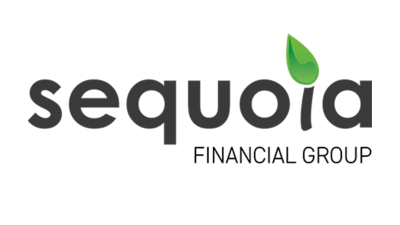Head to head: Retail vs industry
Super choice
Garry Weaven: I think overall it will probably reduce end retirement benefits by increasing costs and commissioned selling, increasing the take-out by commissions, and probably driving up non-price competition costs, direct marketing costs and so on…
I think it just depends on the relative success of industry super funds in getting their message across.
If they’re very successful in getting it across, then I think there will be an increase in end benefits, but I just think it’s going to be very hard for them.
Richard Gilbert: I think the best thing about choice is that people are going to suddenly become aware of their superannuation fund opportunities.
They will more objectively evaluate the pluses and minuses of various funds and they will make choices.
How quickly they make those choices is the issue at stake, but I think it will be good for the industry overall, because people, I think once they know their various options, will be more inclined to put more in.
They will be inclined to get advice and find out how much more they do need to put in.
Financial planners
Richard Gilbert: Advisers look for funds that have integrity because they don’t want to be selling a product to a customer that has not been properly rated… They want to make sure their dealer group is recommending that fund as well.
I think industry funds have clearly recognised the critical need for advice, and they’re acting in that direction.
Garry Weaven: Financial planners don’t recommend industry funds now and they won’t in the future.
Fees
Richard Gilbert: Some companies have made decisions already to very dramatically drop fees. Some others have actually put fees up, knowing they’ve got to advertise more under choice.
It’s hard to know what the outcome is going to be, but I would say there’s going to be a downward pressure on fees.
Garry Weaven: Unfortunately, I think a lot of competition [in a superannuation choice environment] will be non-price competition, through commission selling, and through direct marketing and brand advertising.
In the case of the banks, using their existing commercial lending network of businesses and trying to penetrate super through the workplace.
I think you’ll see a number of [industry] funds also stepping up their direct marketing of one type or another. It will be in PR and advertising, trying to get that message out there.
Super switching
Richard Gilbert: Some individuals will exercise the option of choice. I think it will generally be a cautious exercise and people will need time to weigh up the options.
The trigger point for many will be when they change employers.
If they’re with an employer and that employer uses the current default fund as the choice default fund, then probably there won’t be a lot of movement but, going forward, there will be movement and there will be consolidation of accounts.
Garry Weaven: Obviously inertia for all funds is a big factor. Super’s not front of mind for most people, particularly not for young people, so there is a substantial inertia.
Beyond that, there is a little bit of red tape involved in changing fund…
The forms required under the regulations give maximum prominence to the choice of default fund nominated up-front by the employer. Once that’s nominated, the individual has to go to some considerable trouble to provide the documentation to override that employer default fund.
For employers, changing funds is very easy. An employer can very easily decide to cause his workforce, or most of it, to be switched if they wanted to. I don’t think most will, but they could.
Employers don’t want to be liable for bad decision making. Mostly they don’t want to do the wrong thing by their employees and mostly they won’t change, provided they’re reasonably content with the current dominant fund arrangements.
Industry vs retail under choice
Richard Gilbert: I think there will be a mixed outcome and it’s probably too early to predict. I think there will be winners and losers throughout the cycle, but I don’t expect there will be big winners and losers.
Garry Weaven: I think the jury’s out on that, and I think it depends on the relative efforts of industry funds to directly get their message across, to market their message, and for the retail funds to have their financial planner and accountant networks penetrate the high-net-worth individuals.
Ancillary benefits, such as insurance
Richard Gilbert: There are very big differences in insurances between the segments of funds, and within segments.
But I wouldn’t take away the value of the price proposition industry funds offer. They’ve got good pricing on insurance up to certain levels.
Garry Weaven: In some ways I hope they [industry funds] wont [offer more sophisticated insurance products] because I think there’s an advantage in keeping costs down by keeping things simple.
DIY funds — the real challenge?
Garry Weaven: I think choice will give a bit of a boost to DIY.
What I think has happened with DIY is that it started out substantially as a means for people to avoid the rules of super, that is to get around the rules, to get access to the tax privileged environment of super while still having control over their assets and using them for more immediate purposes than retirement.
I think the tax office is starting to tighten up on those purposes. Now the potential growth is for people who genuinely believe they can do better managing their own portfolio.
Of course, the biggest driver of DIY now is commissioned selling.
It’s not people actively seeking to do it, it’s people being sold it by financial planning networks and accountants.
So I think their field of prey, if you like, has expanded a little bit by choice.
Richard Gilbert: At the big end, the high-net-worth end of the game, probably most people who are setting up a DIY fund have already set it up.
I think it’s hard to estimate how people with lower balances and who are moving into this choice regime will behave.
Recommended for you
Centrepoint Alliance has overtaken Count as the second largest AFSL with more advisers in the pipeline and strong EBITDA growth predictions for FY2026.
ASIC has released an update to its regulatory guidance on managing conflicts of interest for financial services businesses on the back of its private markets surveillance.
Sequoia Financial Group has flagged a series of non-cash impairments for the first half of FY26, citing exposure to Shield and First Guardian and provisions for potential professional indemnity insurance claims.
The Australian Wealth Advisors Group has completed two strategic investments, doubling its number of authorised representatives and increasing its FUMA by more than $1 million.










